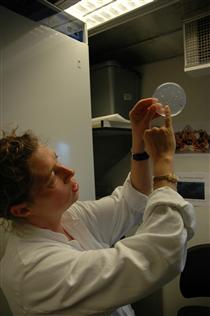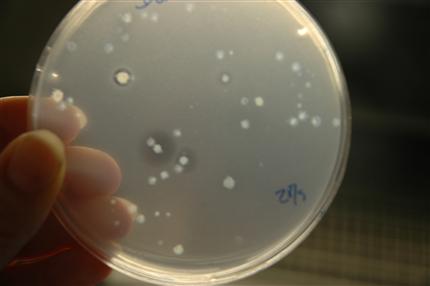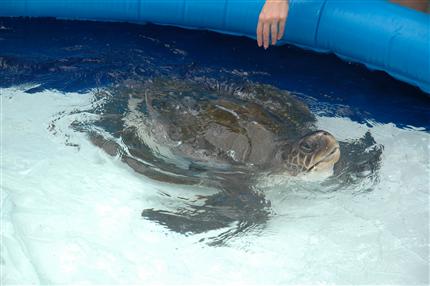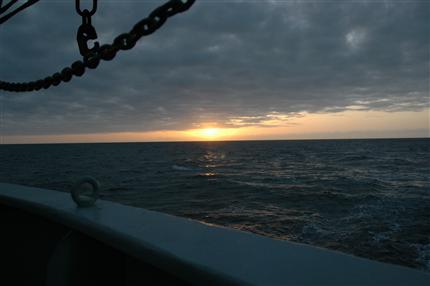Beneficial bacteriaNewsletter 8
Dato 2.10.2006
Roseobacter is a genus of bacteria common to all oceans and one that is doing rather well. It has been found to possess the ability to restrict or kill other bacteria.
This ability means that the bacteria may have potential applications within pharmaceutical and other biochemical industries. Ellen Kirstine Lyhne of CMB (the Center for Microbial Biotechnology, located in Lyngby, Denmark) has just discovered another species which appears to be of the sort that restricts neighbouring bacteria.
The bacteria in the photograph display surrounding clear fields which show their radius of influence
 
Photograph Rane Baadsgaard Lange, The Danish Expedition Foundation
It is too soon to say what applications this discovery might have. The bacteria will firstly be sent home to the Danish Institute for Fisheries Research where it will be named. Biochemists will attempt to isolate the active element within it.
The outcome is completely unknown – the find could lead to a new preservative or disinfectant, a new antibiotic perhaps, even a treatment for cancer. An application may only emerge in several years’ time.
Turtle fever
The turtle alert was sounded once more on Monday morning. The dinghy returned at noon with an adult Olive Ridley marine turtle. This is one of the more widespread species, but like all marine turtles, it is threatened.
“We think this was a male: it had very large claws and the neck was relatively supple. This is characteristic of males, which bend the neck under the female's shell when mating", explains Jesper Møller from the Turtle project.

Photograph Rane Baadsgaard Lange, The Danish Expedition Foundation
The turtle was tagged and equipped with a satellite transmitter, then quickly released into the sea again. Ellen Kirstine took bacteria samples from the shell.
The tagging is of great significance: the Olive Ridley turtle's movements are so far not well documented. To our knowledge, there are no reports of this kind in this particular area (around 30 nautical miles from Ghana's coast).
A surprising gam
Later in the day the dinghy was launched again – the incentive this time a pod of humpback whales. The pod consisted of three adults and a young calf. It was surprising for two reasons: One, humpback whales are not native to the Gulf of Guinea and two, it is unusual to come across such a young animal at this time of year. Calves are normally born in January. This whale was considerably younger than that.

"Sunset over the southern Atlantic"
Photograph Rane Baadsgaard Lange, The Danish Expedition Foundation
Tomorrow, Tuesday 3 October VÆDDEREN will arrive in Tema, a coastal city which serves as the port for the capital, Accra.
|